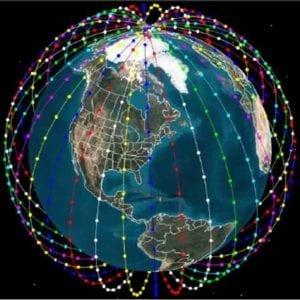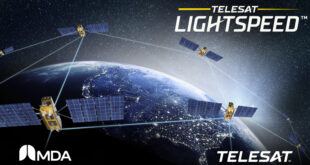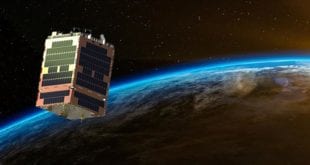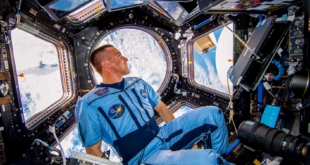
Paris/ Washington DC, 5 November 2021. – A cornucopia of satellites and a run on V-band: Telesat, Astra and Hughes filed requests to the U.S. Federal Communications Commission (FCC) to place and operate altogether nearly 17,000 small satellites in low Earth orbit (LEO), the companies´ FCC filings revealed.
Canadian Telesat intends to overlay its planned Lightspeed constellation of 298 satellites with a second round of a new LEO broadband constellation of 1,373 satellites, operated in V-band and LEO.
Astra filed a request to build a LEO broadband constellation with ultimately as many as 13,620 non-geostationary satellite in V-band, which the launcher startup wants to manufacture in-house, based on its knowhow in developing small launch vehicles. Astra said it proposes a 3-phase approach with the large majority of the satellites and planes occupied in the third phase.
At the same time, Hughes Network Systems filed a request to the FCC to build a LEO broadband constellation with 1,440 satellites in 36 LEO planes, also in V-band, the so-called HVNET system.
Astra also said that it intends to make another attempt to launch a test payload on its small launcher into orbit as early as next week, after the three previous missions failed.
 SpaceWatch.Global An independent perspective on space
SpaceWatch.Global An independent perspective on space




